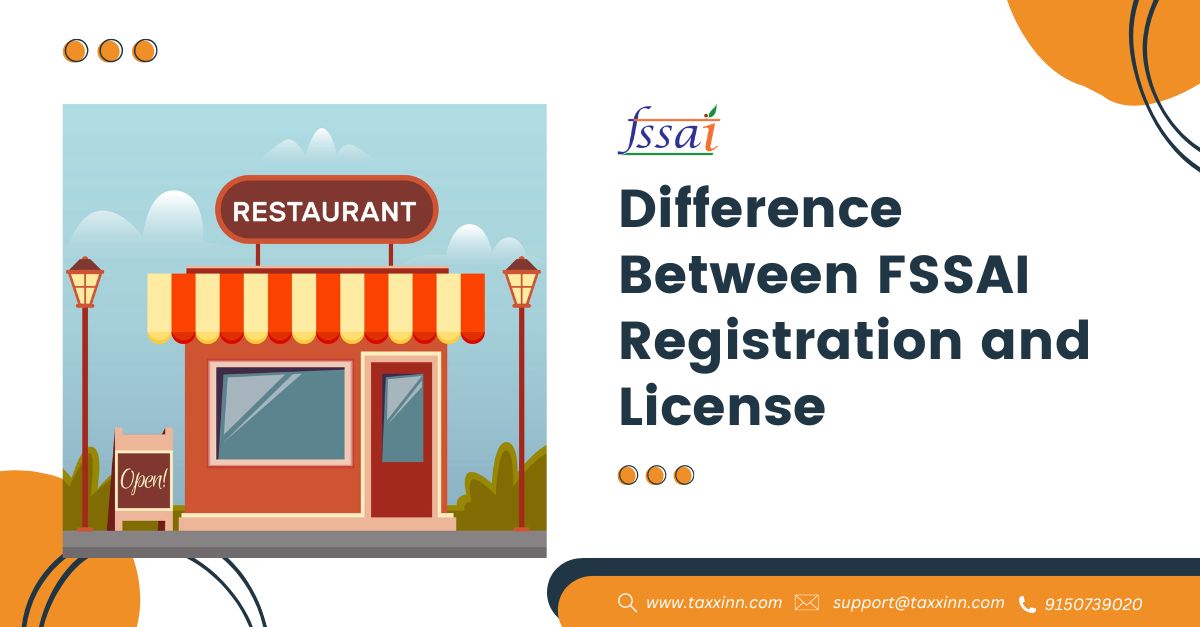In 2006, the Food Safety and Standards Act laid the foundation for the establishment of the Food Safety and Standards Authority of India (FSSAI). Food enterprises operating in India are required to register and obtain licenses under the Food Safety and Standards Act of 2006 and the Food Safety and Standards (Licensing and Registration of Food Enterprises) Regulations of 2011. These regulations ensure compliance and uphold food safety standards.
In any food business, ensuring the highest level of food safety is a primary objective. Understanding the difference between FSSAI registration and license is crucial to achieving this goal. Whether involved in distribution, manufacturing, or any other aspect of food production, all food industry operators in India must obtain an FSSAI registration or license from the legal authority, FSSAI. In this blog, we will clarify the procedure and provide a comprehensive understanding of the difference between FSSAI registration and license.
Functions of FSSAI
The FSS Act of 2006 mandates FSSAI to carry out the following duties:
- Setting standards and guidelines for food-related products, ensuring their enforcement is appropriate for each requirement.
- Establishing regulations for businesses certifying food safety management systems in industrial kitchens.
- Establish accreditation procedures and inform certified laboratories about regulations.
- Providing technical assistance and scientific guidance to the federal and state governments in shaping food safety and nutrition policies and regulations.
- Gathering and consolidating information on food consumption, biological risks, contaminants, and residues, they develop risk identification and implement a quick alert system.
- Establishing a nationwide information system to promptly provide reliable and objective food safety information to the public, consumers, and Panchayats.
- Training programs cater to those working or aspiring to work in the food industry.
- They actively participate in the development of international sanitary, phytosanitary, and food standards while increasing public awareness about food safety and standards.
What is FSSAI Registration?
The government can protect consumer health by leveraging FSSAI Registration. However, small food business owners such as hawkers, small retailers, vendors, temporary stall-holders, or small-scale food industry entrepreneurs, are required to obtain FSSAI Registration. This benefits both the government and food business operators alike.
What is FSSAI License?
Food Business Operators (FBOs) operating medium and large-scale food companies must obtain an FSSAI license. Depending on their business size, they can obtain either a state license or a central license.
Medium-sized processors, manufacturers, merchants, marketers, or transporters need to obtain an FSSAI state license from the state government. If the FBO’s annual turnover is more than Rs. 12 lakhs but not exceeding Rs. 20 crores, they are considered a medium-sized FBO and required to obtain a state license. However, if their annual turnover exceeds Rs. 20 crores, FBOs are obligated to obtain a central license.
Ensure compliance with FSSAI regulations by obtaining the appropriate license for your food business.
FSSAI Registration vs License
| Particulars | FSSAI Registration | FSSAI License |
| Maximum Turnover | Business with an annual income of up to ₹12 lakhs. | Businesses with an annual income worth beyond ₹12 lakhs. |
| Types of FSSAI | Basic Registration | FSSAI Central License and FSSAI State License. |
| Size of the Business | Petty restaurants. | Medium and large-sized restaurants. |
| Validity | The validity is determined by how well the registration applies. | Provided for a term of at least one year validity or with a maximum of almost five years validity. |
| Fees | ₹100 rupees each year is the fixed amount. | Depending on the requirements and type of license, it ranges from ₹2,000 to ₹7,500 every year. |
| Application | Form A | Form B |
| Publication | The FSSAI registration must be visible on the physical premises of the office, and the registered number must be visible on the product package. | The FSSAI license number must be printed by the exporter, importer, trader, and producer on the product package. |
Benefits of FSSAI Registration and License
- The FSSAI license allows FBO to meet international standards for food safety and security and export food products to foreign markets.
- It provides credibility, develops goodwill, and aids in the expansion of the business’s customers.
- Assuring customers of the food’s quality, hygienic practices, and safety via FSSAI registration and licenses helps businesses develop strong relationships with customers.
- The FBO can carry out its operations legally and without striking a violation of the law.
- It enables quick funding from investors and business growth.
- It assures clients that the FBO is dedicated to maintaining public health and is bound by the regulations that guarantee food safety.
Conclusion
In conclusion, obtaining FSSAI Registration is essential for legally operating your food business. If you want to expand your company’s operations and increase revenue, it is crucial to comply with FSSAI regulations and acquire your FSSAI registration. When launching your own business, remember to consider the factors mentioned above. Make sure to submit applications for any necessary licenses and certificates. At Taxxinn, our team of experts will assist you in obtaining FSSAI registration or a license tailored to your specific requirements, guiding you through a seamless process.
Related Reads:
How to Start a Food Processing Business in India?
Food Labelling Business Registration in India – Procedure and Requirements.
What Are the Licences and Registrations Required for Hotel Business?


